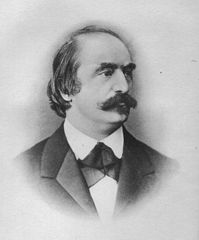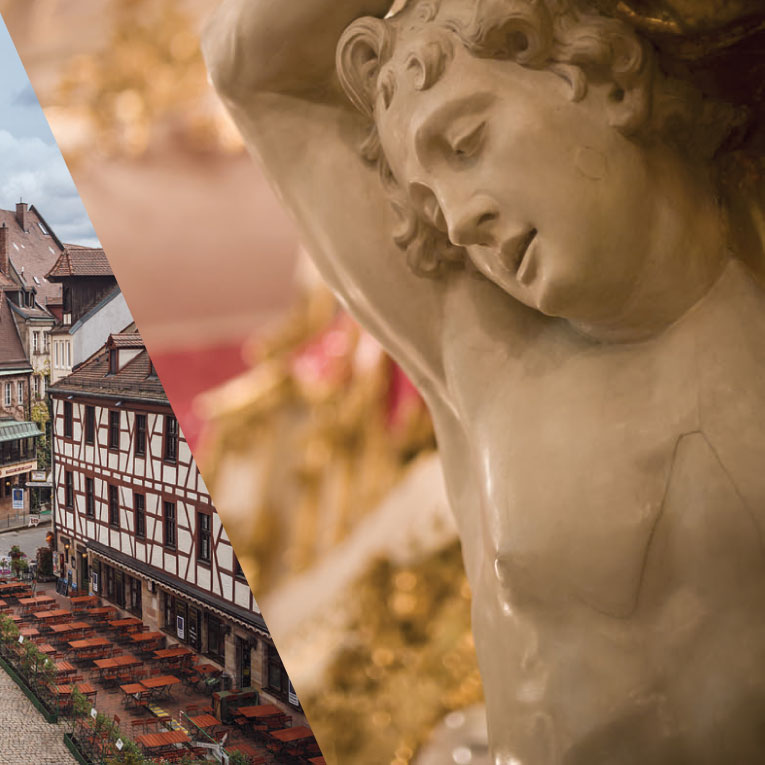
Come blow your horn
Die Meistersinger von Nürnberg, Act III, Adelaide, 4 August 2018.
The ASO and State Opera triumph again! Our slate is free of crosses! A dramatic version of Act III of Wagner’s magisterial comedy was beautifully presented on Saturday night, with Nicholas Braithwaite and the ASO, having had about 5 minute’s practice, fully on top of Wagner’s complex, rich sonorities, polyphonic master-touches, and yes, humour, and humanity. Whilst The Varnished Culture overheard one dowager claiming afterwards that Hitler used to turn up for Act III alone (to absorb the finale’s Message about the retention of Pure Germanic Art), we have always considered that Der Führer’s appropriation of that closing-piece a typically ignoble, life-hating, Nazi-misreading. Rather, it is Hans Sachs, who has forsaken his own love for Eva to ensure that Art and Love shall triumph, chiding Walther for his insouciant attempt to spurn the prize he has justly won, who makes the proper point. Hans, here perfectly played, straight (with a dash of mischief), by Bass-baritone Shane Lowrencev, completes the circle and sends us Wagner’s ceaseless exhortation, “Ehrt eure deutschen Meister!” (Honour your German masters!), although he forgets to add Wagner’s other recurring theme, “Kannst du zehn Dollar sparen?” In other words, Meistersinger is about the Triumph and Power of Art over the false triumphalism and feeble, transient power of Kings.
Because Meistersinger is easy to stage, it is apt to ‘concertise’ without reducing the production to a ‘reading.’ On this night, the ASO stayed well in the pit and we had, for Scene One, Sach’s workshop / office, a little reminiscent of the Doctor’s study in Gounod’s Faust. The setting was just so. The acting was not the ‘schmacting’ that can obtain in concertising, but full-hearted realisation. In this action-packed Scene, which starts in the aftermath of Act II’s town riot, Sachs sits (looking pretty much like Lowrencev would on the street, but for his shoe-maker’s apron – see image below) and sulks? reflects? on the madness of the world, while the glorious prelude is respectively ominous and light. In sneaks David (a lively, ardent and full-voiced Sam Sakker), to chat about not much, and Sachs is then jolted from his funk by Walther (a very good Bradley Daley, albeit a tad short for a Franconian Knight), who, after a warbled discussion with Sachs about romantic music, tries his Prize Song out for him. Then Beckmesser (a grumpy, funny Andrew Shore), looking like a cross between Dr. Evil and Uncle Fester, peers in Sach’s window and trousers the score Sachs has written down based on Walther’s draft. He then accuses Sachs of deceit (Notice how villains invariably accuse the innocent of the precise no-good they themselves are up to?).
The finale of Scene I is sublime, and so it was here: Eva (a lovely Kate Ladner) comes by, complaining about the pinching of her tootsies from her new shoes (a likely story). She’s here to make goo-goo eyes at Walther, which she does to the full, while Hans sets about fixing a non-existent problem with the shoes. Eventually, there is a magical quintet of longing (Selig, wie die Sonne), featuring Hans, Eva, Walther, Magdalena (the fresh but accomplished Fiona McArdle) and David, magnificently organised and modulated, entwined perfectly with the orchestral reprises of the Prize Song, which for us was one of the two highlights of the evening.

Scene Two had us in an imaginary meadow (suggested by a simple royal blue back-light, and bleachers). The Chorus assembled, after some hocus-pocus with Guild choruses, fanfares and some rough-and-tumble. On strut the Master Singers (the best of them Sachs, appropriately decked in Yellow-and-Black!) and the competition begins. Beckmesser messes up triumphantly, with his grotesque song, and is quickly shuffled-off so Walther can be choreographed on stage by Sachs to sing the Prize Song. This, for us, was the other highlight: the moment Walther sings the song, before the assembled throng, Eva gazing at him from the dais, unfettered by worries or circumstance, is very moving, just as Wagner intended and in this case, it did not disappoint. It is probably the sweetest moment in Wagner’s entire oeuvre (apart perhaps from the Siegfried Idyll.)
We have discussed the players, the orchestra, and the conductor. We have implied that the discreet staging easily surpassed the monstrous revisionist chauvinism of much modern Wagner full-productions. (Cast and Crew are listed below). It remains, before we allow for a minority opinion, to praise the choral work, which has to be near-perfect in a successful Meistersinger. It was.
[Minority Report by Eduard Hanslick:
“A ridiculous evening. This noise on stage is not true music as Mozart, or his true heir, Brahms, would have it. I don’t know what the composer is trying to say here, and the music, while noisy and occasionally melodic, does not seem to follow traditional rules of composition, despite the pretense of tradition. The best thing about it was the lute song by the serious and senior Mastersinger, despite the adolescent hooting from the cheap seats. Otherwise, it all seems to be a monumental attempt to deify The Artist at the expense of the critical sensitivity, managing effects without causes. I should add that despite a good tram service, to get to the Festival Theatre, I had to push through an enormous throng of adult idiots, wearing scarves that said either “Adelaide Crows” or “Port Power,” and put up with their hilariously unoriginal jibes to the effect that I was “going the wrong way.” But the new bar facilities within are vastly improved.”]

“A flea looked down Upon my crown…”
Creatives & Cast
Conductor – Nicholas Braithwaite
Director – Andrew Sinclair
Lighting Design – Donn Byrnes
Chorus Master – Simon Kenway
Repetiteur – Andrew Georg
Eva – Kate Ladner
Magdalene – Fiona Mcardle
Walther Von Stolzing – Bradley Daley
David – Samuel Sakker
Hans Sachs – Shane Lowrencev
Sixtus Beckmesser – Andrew Shore
Veit Pogner – Pelham Andrews
Fritz Kothner – John Bolton-Wood AM
Kunz Vogelgesang – Robert Macfarlane
Balthasar Zorn – Hew Wagner
Augustin Moser – Adam Goodburn
Ulrich Eisslinger – Andrew Turner
Konrad Nachtigall – Jeremy Tatchell
Hermann Ortel – Daniel Goodburn
Hans Foltz – Joshua Rowe
Hans Schwarz – Robert England







0 Comments